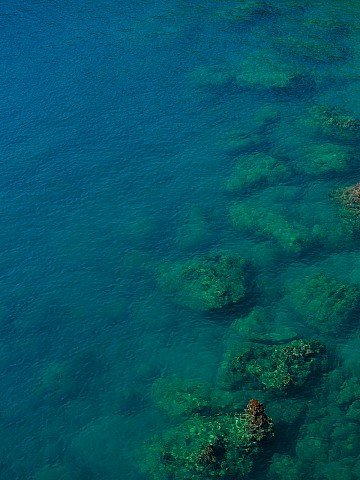In a major collaborative effort to tackle this critical environmental issue, CMCC researcher Momme Butenschön has contributed to a UNESCO report on Ocean Acidification. This comprehensive report represents a unified call to action from the global ocean science community, offering a strategic roadmap to better understand, monitor, and mitigate its far-reaching impacts.
The newly published Intergovernmental Oceanographic Commission (IOC) – UNESCO Technical Report, Ocean Acidification Research for Sustainability: A Community Vision for the Ocean Decade, is an integral part of the UN-endorsed Ocean Acidification Research for Sustainability (OARS) programme. This report emphasizes the urgent need for clear, societally relevant predictions and projections for ocean acidification, particularly given its impacts on marine ecosystems, biodiversity, and human communities worldwide.
The report presents seven white papers that collectively outline essential outcomes aimed at achieving Sustainable Development Goal (SDG) 14.3, which seeks to “minimize and address the impacts of ocean acidification, including through enhanced scientific cooperation at all levels.”
CMCC scientist Momme Butenschön contributed as a co-author to one of the white papers, centered on identifying critical gaps in current ocean acidification modeling and proposing a roadmap to bridge these gaps, in order to “provide appropriate data and information necessary to the development of societally relevant predictions and projections”.
This work was instrumental in analyzing these gaps and designing a strategic framework to address them, contributing to an inclusive and data-driven approach that integrates observational insights, advanced modeling techniques, and biological impact assessments.
“While the process of ocean acidification is well understood and predictable at the global scale, its role and impact in local and coastal settings are much more uncertain, largely due to interactions with other anthropogenic pressures and the increased natural variability at smaller, highly dynamic scales,” says Butenschön. “However, robust prognostic information is critical at these scales to provide viable options and pathways for successful mitigation and adaptation to this climate hazard, in combination with other anthropogenic pressures.”
The report highlights the need for accessible and actionable information, addressing the lack of comprehensive prognostic capabilities and the limited reach of mitigation and adaptation tools for local stakeholders. The focus was on building a cross-sectoral strategy that leverages observational networks, innovative modeling approaches, and close engagement with practitioners and decision-makers to enhance societal impact.
“Ocean acidification is a global issue with local impacts and it requires a global community of experts working across scales to advance the prediction systems,” said Samantha Siedlecki, associate professor at the University of Connecticut and lead author of the paper. “By assembling a group of experts from the international community working on this issue we identified priorities here and suggested some ways forward.”
In alignment with the goals of the OARS programme, the report is positioned to drive policy, raise public awareness, and foster collaboration across diverse research fields, ultimately shaping a sustainable response to ocean acidification. This effort reinforces CMCC’s commitment to leading impactful climate science research that addresses global environmental challenges while providing local solutions.
More information:
Siedlecki, S., Bellerby, R., Schoo, K. L., Pitcher, G., Lovenduski, N., Long, M., Butenschön, M., Sutton, A. 2024. OARS Outcome 5: Provide appropriate data and information necessary to the development of societally relevant predictions and projections. In: Ocean Acidification Research for Sustainability – A Community Vision for the Ocean Decade. IOC-UNESCO. (IOC Technical Series, 185.) Paris, UNESCO. doi: https://doi.org/10.25607/YPE3-0H04
